5 Ways to Promote Sustainability using Gamification

Greetings eco-ninjas, welcome to another fabulous listicle. Let’s cut to the chase, since it seems that the point of lists is their efficiency. Today, we embark on an epic quest to explore the wondrous world of gamification and how it can promote sustainability through educational challenges. Join us as we discover five great ways to motivate and engage players in adopting eco-friendly behaviours:
1. Eco-challenges and Quests: Create interactive challenges and quests that encourage players to complete environmentally friendly tasks and cultivate lifelong habits. From reducing carbon footprints to recycling and conserving energy, players will earn points, badges, and rewards for their green triumphs. By driving awareness and anchoring learning, these eco-challenges empower individuals to adopt a sustainable lifestyle, making a positive impact on the planet and inspiring others to join the movement for a greener future. It’s a race to the eco-friendly finish line!
We created a sustainability-themed project of our own, called Eco-Hero, using the seemingly boundless powers of ChatGPT to put together a series of engaging challenges centered around eco-friendly practices and environmental awareness. Through this initiative, we aim to empower individuals with knowledge, encourage responsible behaviors, and inspire a collective commitment to sustainable lifestyle choices.
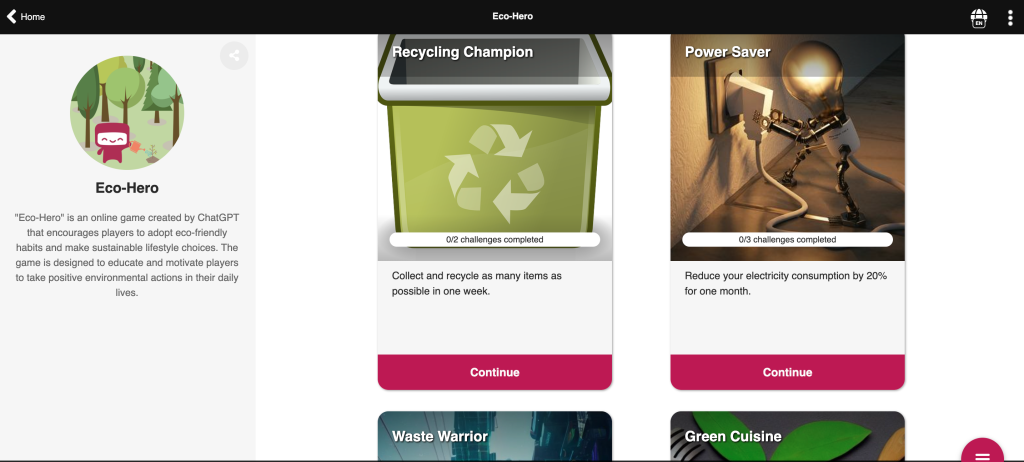
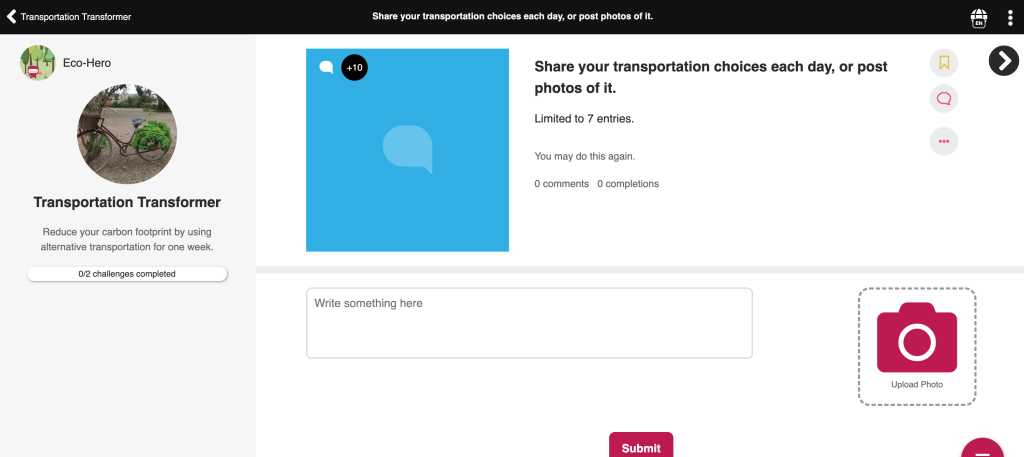
2. Leaderboards and Competition: Ah, the sweet taste of friendly competition! Forge champions and advocates of sustainability by incorporating leaderboards to monitor and showcase players’ eco-conscious endeavours. This ingenious gamified approach not only fuels the motivation to continuously enhance their eco-friendly behaviours but also drives a competitive spirit to reach for the coveted top spot on the leaderboard. As players vie for recognition and rewards, they become living examples of the positive impact of sustainable living, inspiring others to join the ranks and champion the cause for a greener and more sustainable world.
DBS collaborated with Sustainability in Singapore to reduce their environmental footprint by engaging their staff in novel and innovative ways. During their annual Star Wars Day staff event, they held an Eco-Cup Competition, which ignited a company-wide contest between different departments, driving improvements in energy-saving and recycling rates. Technical changes, like adjusting the air conditioner’s temperature, made tangible contributions to energy savings. Together, DBS and Sustainability in Singapore sparked a sustainable revolution within the organisation by use of friendly competition, empowering staff with knowledge and camaraderie as they work towards a greener future.
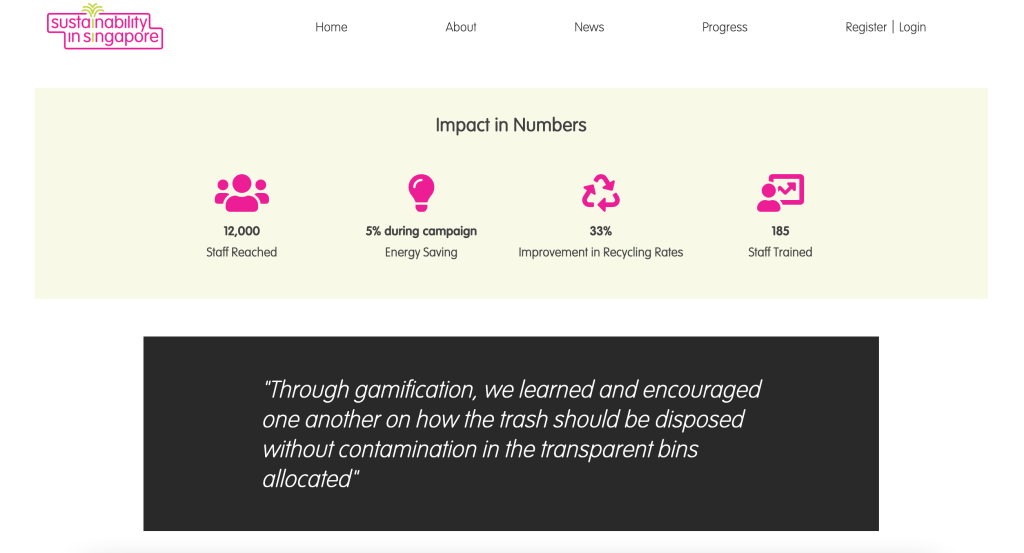
3. Eco-rewards: Players unlock more than just digital badges and in-game treasures; they experience tangible growth in their commitment to sustainability. These rewards, proudly displayed on their profiles or within the gamified platform, symbolise their dedication and progress in embracing a greener lifestyle. Beyond aesthetics, these accolades serve as a testament to their real-world impact, fostering a sense of accomplishment and reinforcing the joy of actively participating in eco-friendly activities. As they witness their improvements firsthand, players are motivated to continue their journey towards a more sustainable future, savouring the fulfilment of making a genuine difference for the planet.
The core business model of RecycleBank revolves around gamification, making it more than just a feature. Collaborating with cities and brands, players accumulate points by participating in online activities and continuous learning, unlocking a diverse array of rewards. From exclusive deals to discounts on eco-friendly products and the chance to donate to local charities, RecycleBank’s meaningful incentives cater to individual goals, fostering long-term sustainable behavior and active engagement with the platform. The lesson to learn here is the significance of offering diverse and purposeful incentives to encourage lasting commitment to sustainability.
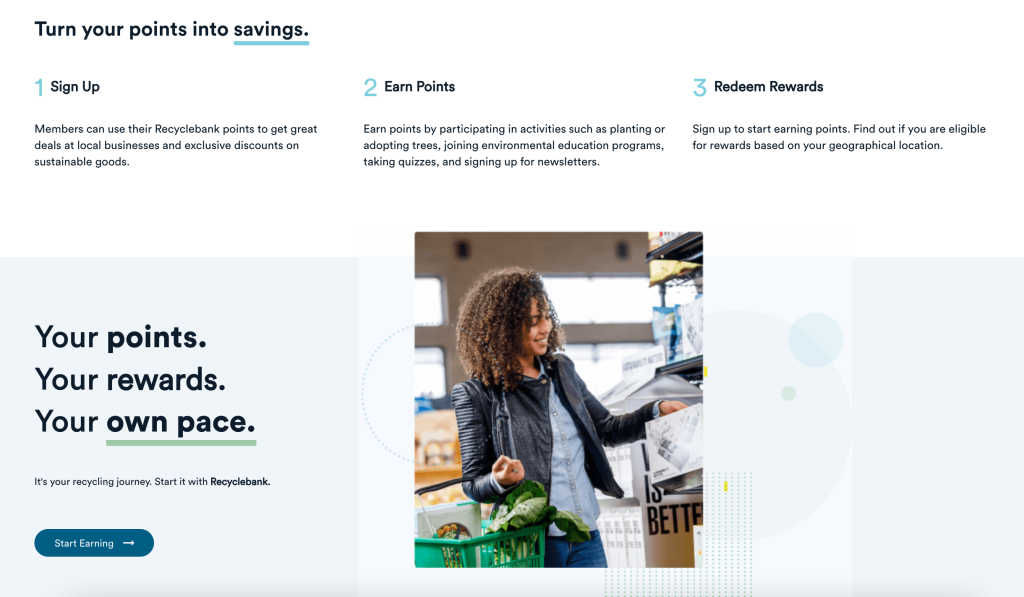
4. Educational and Interactive Challenges: Hurry, before we sink! The biggest challenge facing sustainability right now is a lack of education and awareness. To tackle this issue, develop interactive quizzes, puzzles, or trivia games that are not only fun but also focus on educating players about sustainable practices and environmental issues. By incorporating engaging content and knowledge-sharing elements into these games, participants can immerse themselves in an enjoyable and interactive learning experience, gaining valuable insights into the importance of sustainability. Through these initiatives, we can bridge the gap in education and raise awareness about the pressing need for sustainable actions to safeguard our planet’s future. Noooo Jack…
Singapore Sinking, a gamified project created by SMU students, raises awareness on easily-implemented sustainability initiatives in order to try and alleviate climate change. Using an engaging narrative, it introduces actionable steps through an interactive and fun gamified experience.
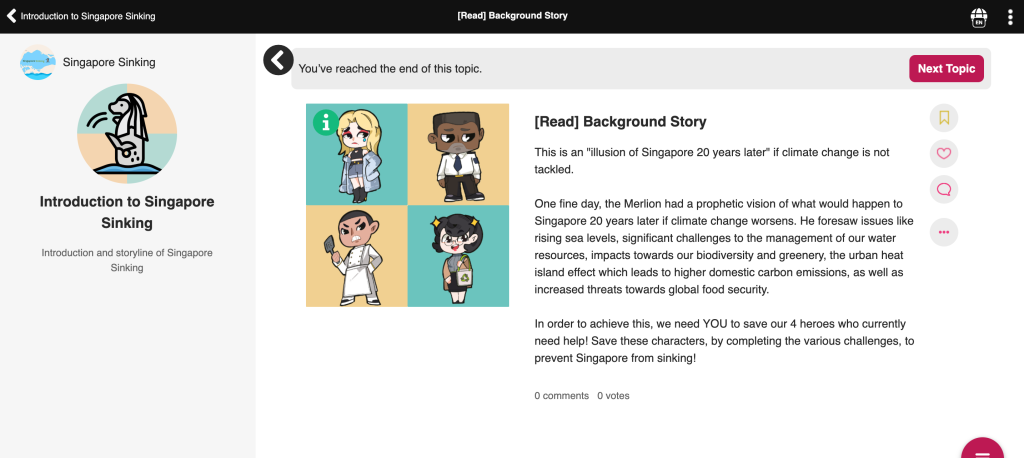
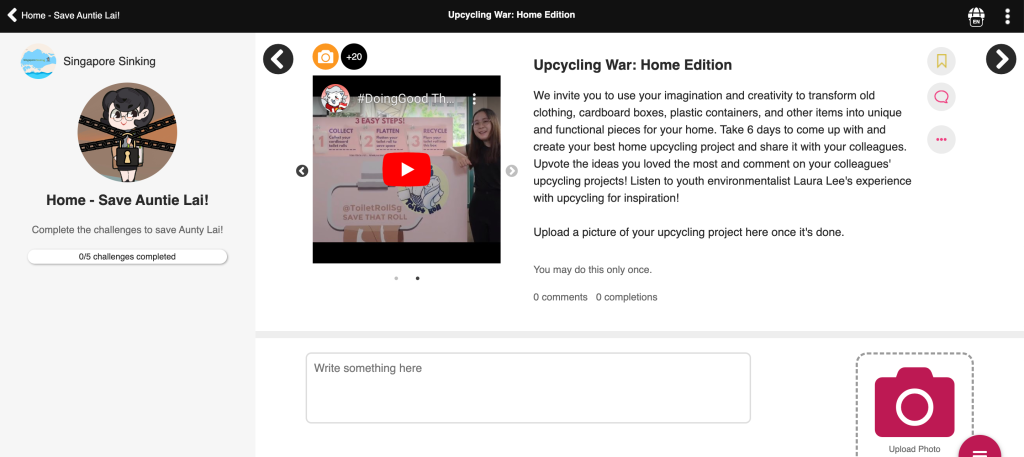
5. Collaborative Projects: Unite, eco-ninjas, for a grand mission! Foster collaboration and social interaction by implementing group or community-based sustainability projects. Participants can work together towards a common goal, such as reducing waste or planting trees. Encourage teamwork, communication, and collective problem-solving by providing shared progress tracking, milestones, and rewards for achieving sustainability targets as a group.
German software giant, SAP, showcases the power of collaboration and gamification in their sustainability initiative. With the TwoGo app, they encourage employees to carpool, reducing emissions and expenses. By adding a social element and matching users based on common interests, the app fosters friendships and networks. Employees earn points and can donate savings to charities, creating a win-win-win for SAP, its workforce, and the environment.
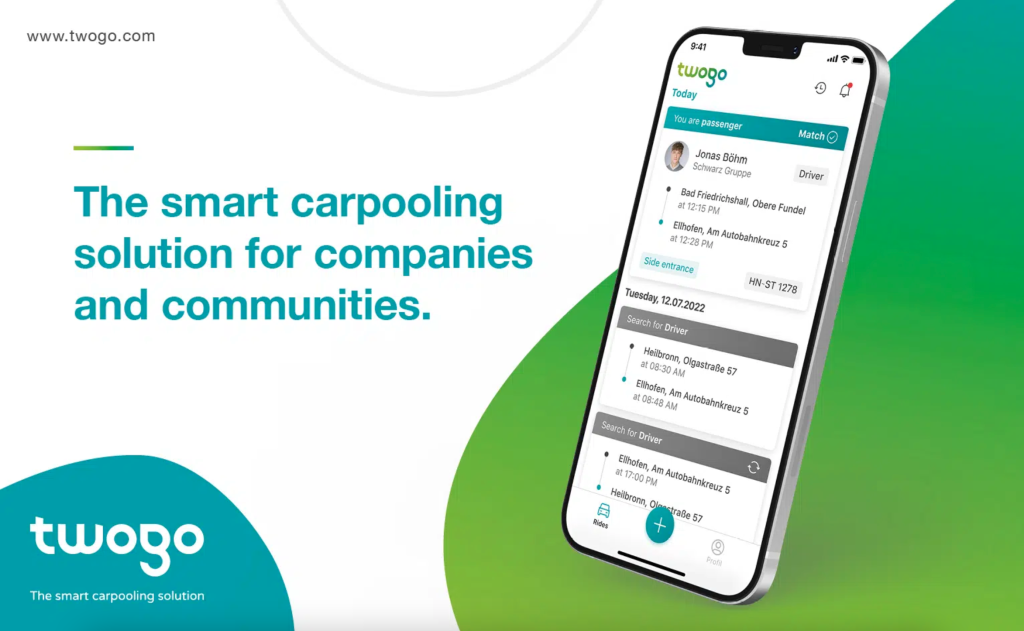
By infusing sustainability initiatives with gamification elements, you can create an engaging and motivating experience that encourages individuals to embrace eco-friendly practices in a fun and interactive manner. This approach helps raise awareness, drive behaviour change, and promote a culture of sustainability. Harness the magic of gamification to weave sustainability into our daily lives. Your adventure awaits!
Do you have any more suggestions on how to level up our sustainability game? Add yours to the comments below and let’s keep the eco-friendly fun going! Together, we’ll create a greener and brighter future for everyone.
